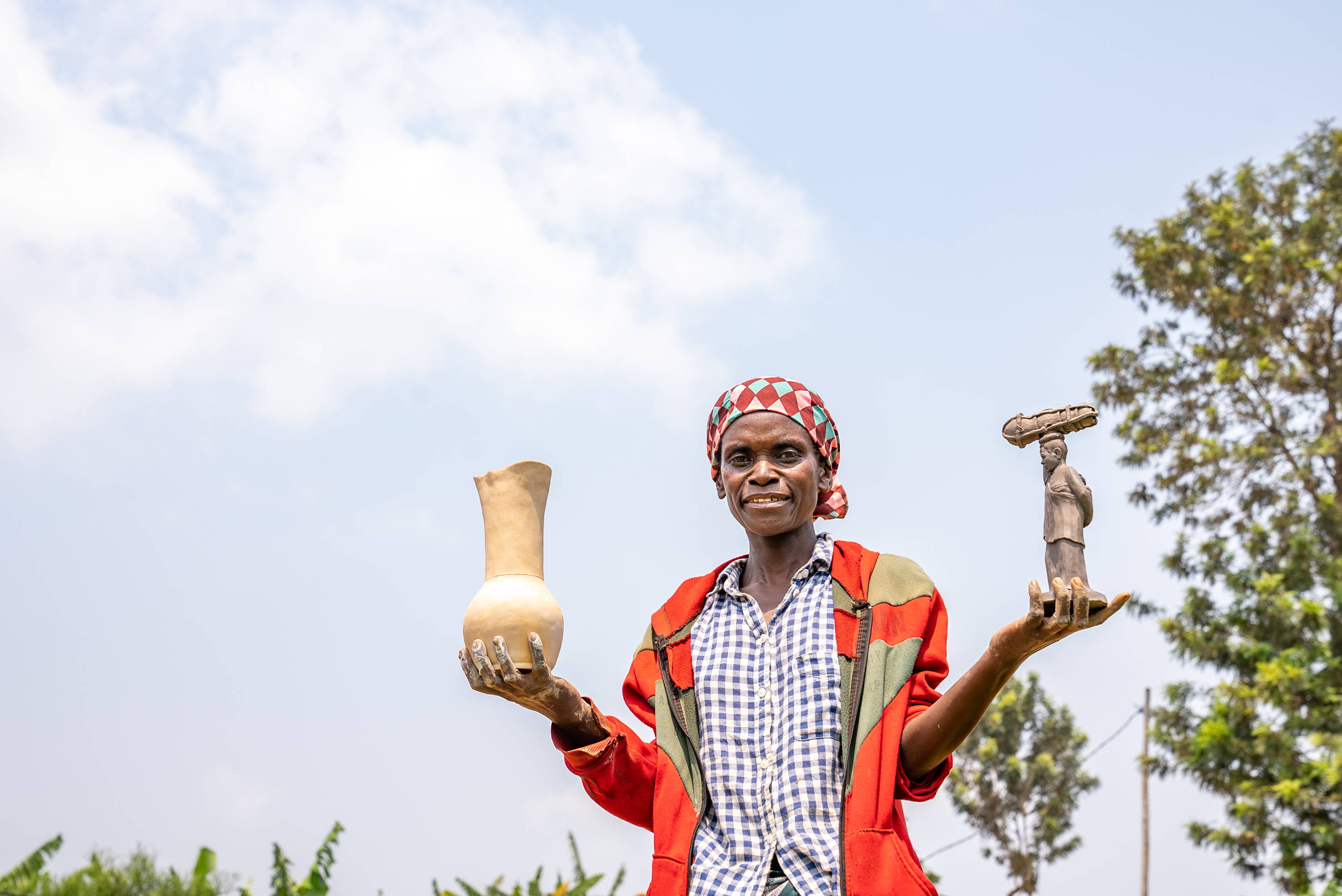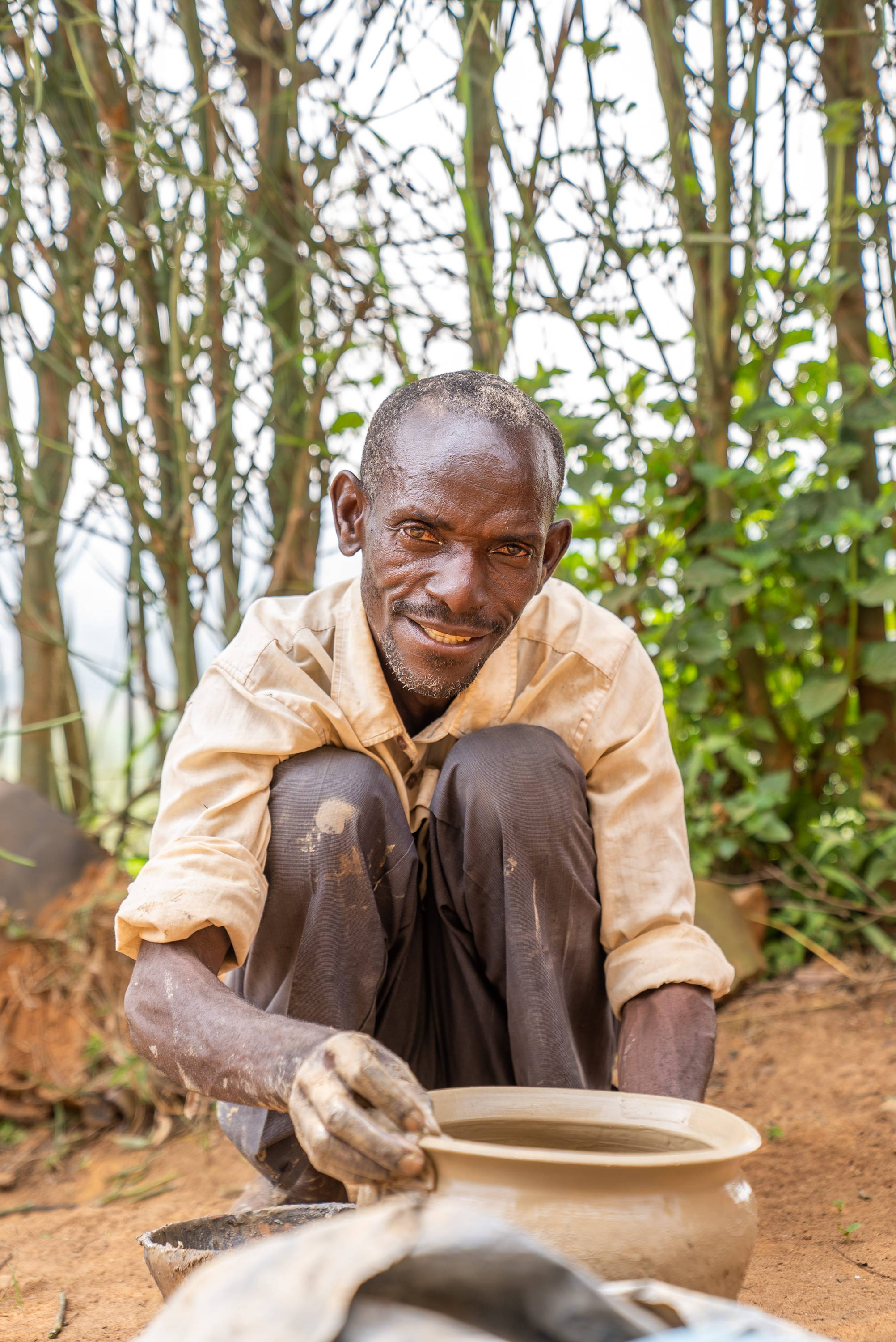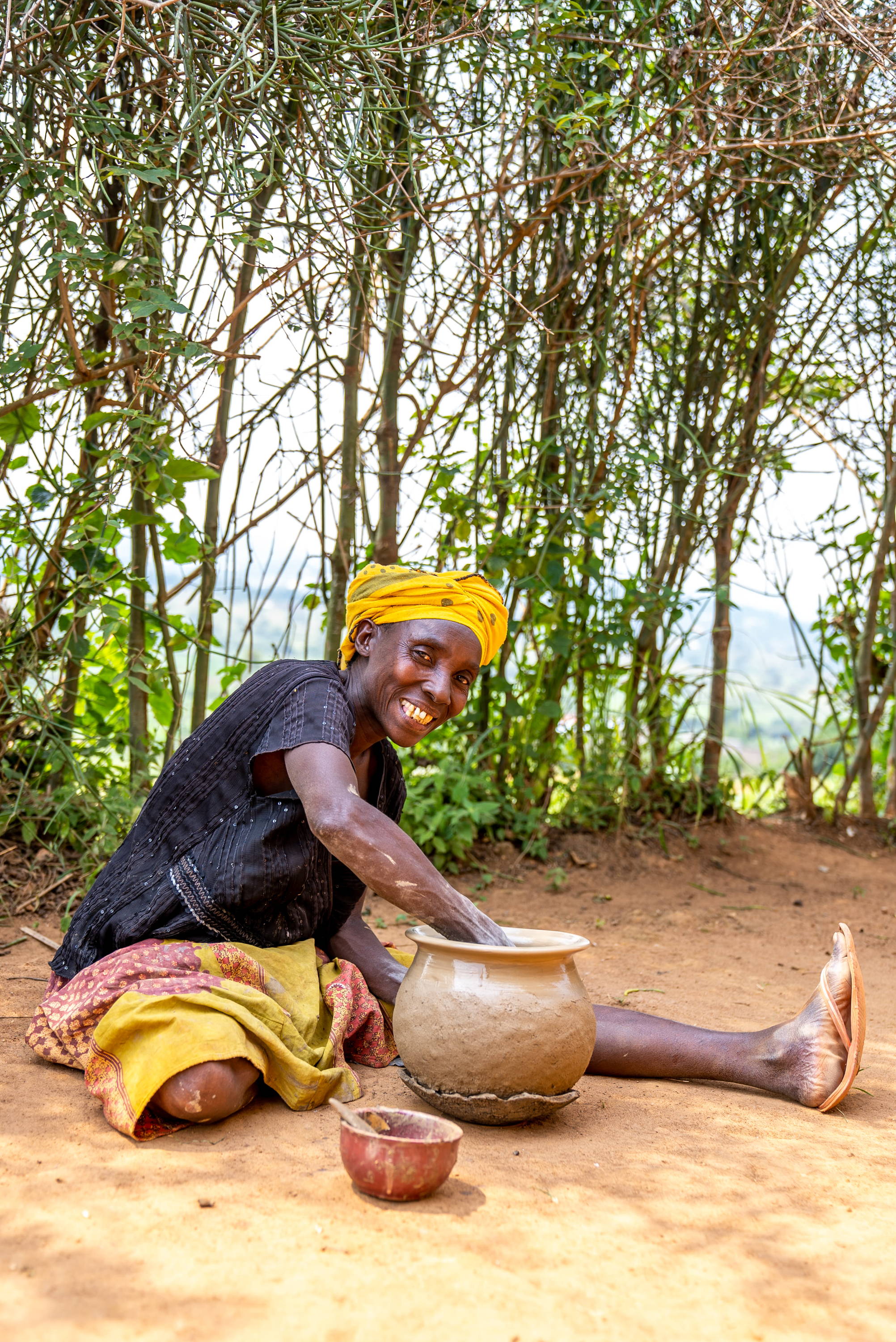Reviving Tradition and Empowering Communities: The Batwa Ceramic Cooperative in Rwanda
The Lemonaid & ChariTea Foundation is committed to empowering Rwanda’s Batwa community by revitalising traditional craftsmanship and fostering economic independence.

Empowering Through Education and Innovation
Recognising these challenges, AIMPO has focused on creating sustainable livelihoods for the Batwa through education, training, and empowerment. Their latest initiative, the establishment of a ceramics cooperative in Bugasera, aims to modernise the Batwa’s traditional ceramic production, making it competitive in both national and international markets. The project is not just about economic survival; it’s about restoring dignity and providing the Batwa with the tools to be self-reliant.
The cooperative will include a state-of-the-art ceramics training centre where ten Batwa individuals from various communities will be trained as "trainers for trainers." These individuals, already experienced in traditional ceramics, will learn modern production techniques and business skills, enabling them to pass on this knowledge to others in their communities. This approach ensures that the skills are multiplied, creating more job opportunities and reducing unemployment within the Batwa population.
A Path to Economic Independence
The impact of this project extends beyond the individual trainees. A total of 184 families from Nyamata and Musenyi, two regions in Bugasera, will benefit from the cooperative. In addition to production skills, the project will offer training in social media marketing, business management, and networking, equipping the Batwa with the tools they need to thrive in the modern economy. By aligning with the Rwandan government’s "Made in Rwanda" campaign, AIMPO’s project will help promote Batwa ceramics to a broader audience, fostering pride in local craftsmanship and encouraging domestic and international sales.
Towards a Brighter Future
The Batwa ceramics project is more than just an economic initiative; it’s a step towards social transformation. Almost 30 years after the genocide, Rwanda continues to rebuild, and inclusion is key to this process. By integrating the Batwa into the national economy and society, the project contributes to Rwanda’s National Strategy for Transformation. It diversifies job opportunities, reduces poverty, and strengthens the social fabric of the nation.
Through the support of Lemonaid and ChariTea eV, AIMPO is laying the foundation for a future where the Batwa can thrive as part of Rwanda’s rich cultural mosaic. As the Batwa artisans hone their craft and bring their unique heritage to the marketplace, they are not just creating ceramics—they are shaping a new narrative for their community, one that is rooted in resilience, creativity, and hope.


